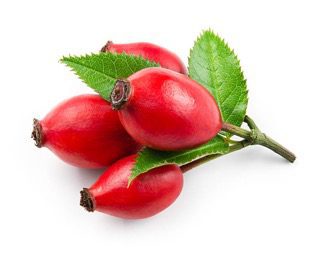

Rosehips, also known as rose haws, are the round, reddish-orange fruits of the rose plant. They are originally from Europe but can now be found in many parts of the world. Rosehips are often used in herbal medicine as they are a great source of vitamin C, which can boost the immune system and fend off infections. However, dogs can produce their own vitamin C, so it’s important to only offer rosehips in moderation. Additionally, the hairy inner parts of the fruit can cause discomfort to a dog’s skin and digestive tract. Fresh rosehips can be given to dogs, but it’s important to cut them in half and remove the seeds first. Rosehip supplements have been used to support joint health and treat arthritis in dogs.
Rosehips can provide a boost to a dog’s immune system thanks to their high vitamin C content. This can help fight off infections and diseases.
Although rosehips are safe for dogs to eat, it’s important to offer them in moderation. While they are a good source of vitamin C, dogs can already synthesize this vitamin on their own. Additionally, the hairy inner parts of the fruit can cause irritation to a dog’s skin and digestive tract.
Fresh rosehips can be given to dogs, but it’s important to cut them in half and remove the seeds first. Rosehip supplements have also been used to support joint health and treat arthritis in dogs.
While rosehips can have some benefits for dogs, it's important to be mindful of the potential risks, such as the irritation caused by the inner hairs. It's also worth noting that even though dog food may have vitamin C added to it, it's often not enough to provide the full benefits. However, there are many alternative fruits and vegetables that can be given to dogs. Carrots and green beans are both affordable and easily accessible options that can provide a variety of health benefits.
The layer of hairs surrounding the rosehip seeds can cause irritation to a dog's mouth and digestive tract if ingested.
Have you ever given your furry friend rosehips? How did they like it? Let us know in the comments below! Remember to always consult with a veterinarian before introducing any new foods to your dog's diet. Stay healthy, pups!